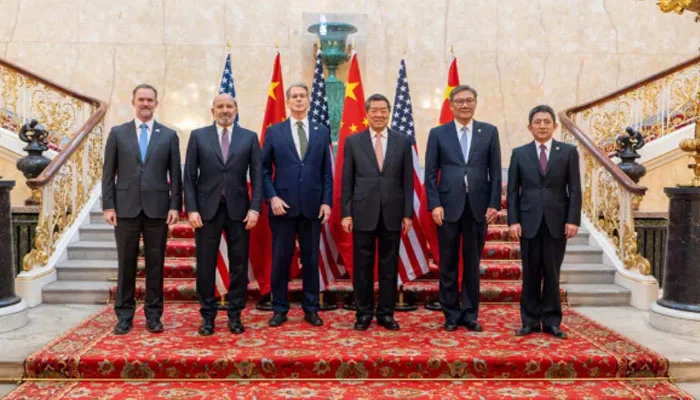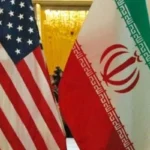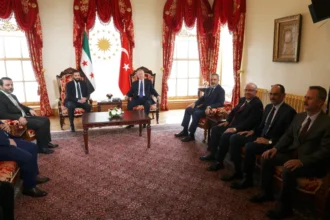US-China Trade Talks Show Signs of Progress on Second Day in London
The United States and China entered the second day of trade negotiations in London on Tuesday, with growing optimism that the two economic superpowers could edge closer to resolving their long-standing trade war. US Commerce Secretary Howard Lutnick told Bloomberg Television that the talks were “going well,” noting that Tuesday’s discussions were expected to continue throughout the day.
Global markets remained largely subdued as investors awaited developments from the talks, which aim to solidify a tentative truce reached in an earlier round of negotiations held in Geneva. Kathleen Brooks, research director at XTB, said the “lack of positive headlines” had weighed on both stocks and the US dollar. However, signs of optimism emerged, with one of President Donald Trump’s top economic advisers, Kevin Hassett, predicting a “big, strong handshake” to mark a breakthrough in the talks.
President Trump also expressed confidence, telling reporters at the White House, “We are doing well with China. China’s not easy… I’m only getting good reports.”
The talks, hosted at Lancaster House in the UK, are expected to focus heavily on rare earth minerals — a key Chinese export used in the production of smartphones, electric vehicle batteries, and green technology. Hassett noted that China had agreed in Geneva to release critical supplies of rare earths in exchange for the US easing tariffs, but said the process was progressing “slower than some companies believed was optimal.”
He added that the Trump administration might be willing to scale back recent restrictions on technology exports as part of a broader compromise, suggesting concessions on both sides could be possible.
Tensions have remained high between Washington and Beijing since the trade war erupted under Trump’s presidency, with tariffs on both sides reaching punitive levels. A temporary agreement struck in Geneva had lowered US tariffs from 145% to 30% and Chinese retaliatory measures from 125% to 10%, but Trump later accused China of “totally violating” the terms of the deal.
Despite these setbacks, analysts noted that there were glimmers of progress. Ipek Ozkardeskaya of Swissquote Bank commented that while there had been “no breakthrough,” the negotiations were reportedly going “relatively well.” Rumors circulated that the US may offer concessions on tech exports if China lifts restrictions on rare earth supplies.
Still, experts remained cautious. Thomas Mathews of Capital Economics warned that a full rollback of US trade barriers was unlikely, which could dampen hopes for a sustained market rally.
Meanwhile, China is exploring alternative trade partnerships, including discussions with Japan and South Korea, to mitigate the impact of US tariffs. Chinese President Xi Jinping urged South Korean President Lee Jae-myung to collaborate on maintaining global supply chain stability and defending free trade, according to the Xinhua news agency.
China’s delegation in London is led by Vice Premier He Lifeng and includes Commerce Minister Wang Wentao and trade representative Li Chenggang. On the US side, Treasury Secretary Scott Bessent, Commerce Secretary Lutnick, and Trade Representative Jamieson Greer are spearheading the negotiations.














